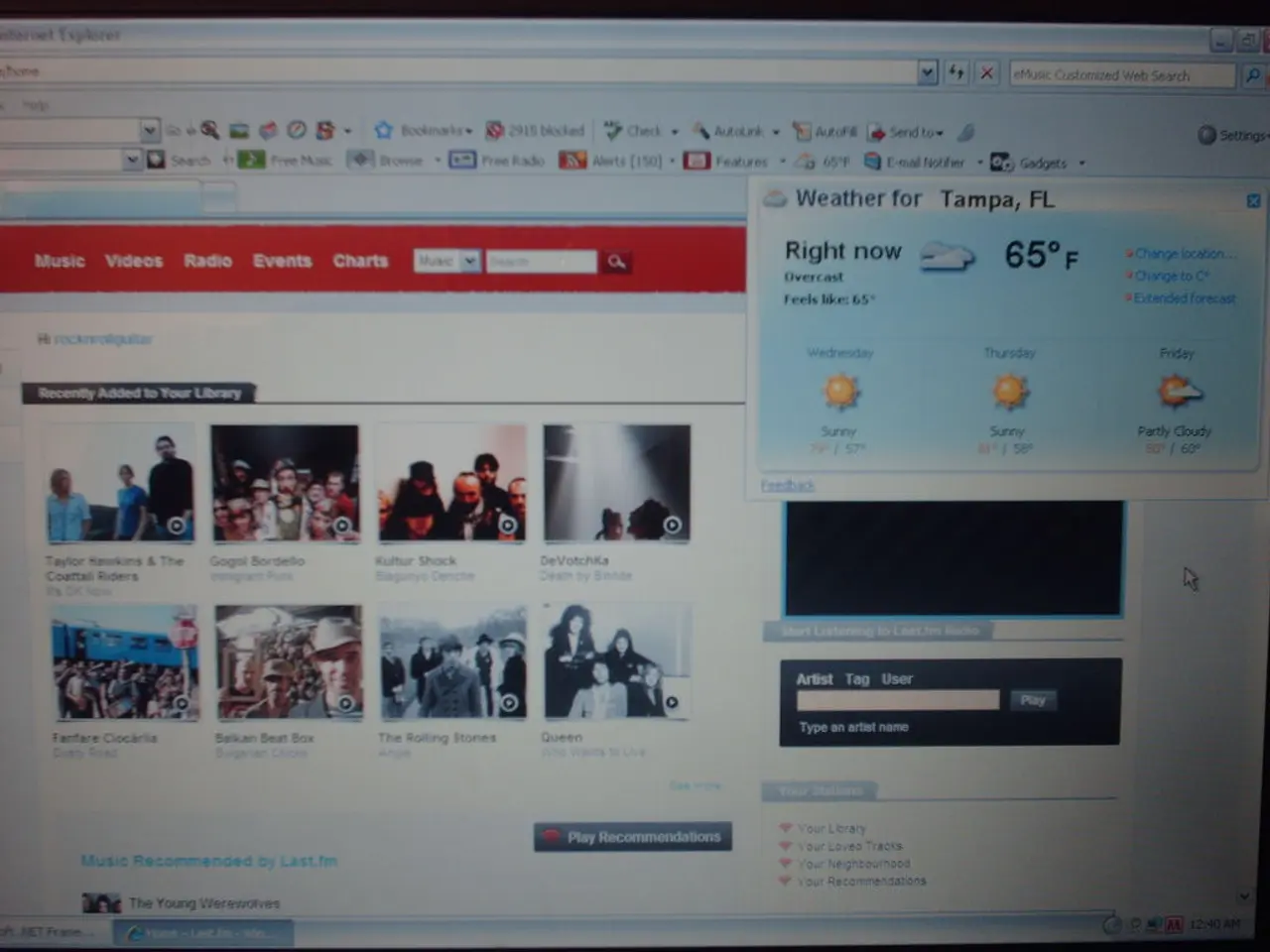Web Users, Beware: Godaddy Secretly Installs CloudFlare on Your Website
In the realm of internet services, a seemingly innocuous integration has sparked debate and raised concerns among users. GoDaddy, a popular domain registrar and web hosting service, has reportedly integrated Cloudflare for some users' websites without explicit notification [1]. This practice, while potentially beneficial in terms of security and performance, can create a host of privacy and control issues for users.
The primary concern stemming from GoDaddy's non-transparent use of Cloudflare is the lack of user awareness about their traffic and data being routed through a third party. This lack of transparency can affect trust and expectations about data privacy, as users might not be aware that their DNS queries, traffic, or site data are passing through Cloudflare [2].
Other potential issues include increased data exposure risk, performance and security trade-offs, reduced control and visibility, and privacy and compliance concerns. Routing through Cloudflare means that the company processes traffic and DNS data, which could expose sensitive information if mishandled or compromised [2]. Moreover, some Cloudflare Enterprise integrations can be restrictive or have caching and performance issues, which might affect site reliability or user experience [1].
Users also lose direct control over traffic handling, and site owners might face difficulties diagnosing issues or managing security features offered by direct Cloudflare control or alternatives [2]. Integrating Cloudflare without clear user notice can conflict with privacy regulations requiring informed consent, especially if personal user data traverses their network without disclosure [2].
Moreover, concerns have been raised about Cloudflare's relationships with government agencies, potentially leading to data access issues [3]. Some argue that Cloudflare compromises privacy and encryption by acting as a "man-in-the-middle" [3]. There have also been reports of Cloudflare slowing down websites and blocking legitimate users, including site owners [4].
However, it is important to note that Cloudflare provides well-regarded security and performance benefits. Website owners should consider whether Cloudflare aligns with their security and privacy needs. For instance, platforms like Vercel explicitly recommend against using Cloudflare as a reverse proxy because it limits traffic visibility and degrades bot protection accuracy, highlighting how integration can lead to security management challenges [5].
In summary, while Cloudflare provides valuable security and performance benefits, GoDaddy's non-transparent use of Cloudflare creates privacy and control issues for users by routing their internet traffic through an additional provider without clear notification or consent. This practice may expose users to unknown data processing and potential compliance risks. More transparent user communication and explicit opt-in would mitigate many of these concerns.
It is worth mentioning that GoDaddy can remove Cloudflare from a site upon request, potentially improving site performance. However, users must be vigilant and informed about the services they use to ensure their privacy and security are not compromised.
Read also:
- Senators pressure nominated leader of CISA on election security concerns, focus of agency highlighted
- Digital passwords come under pressure as major tech companies move towards strengthened security measures
- Blockaid's security services now integrated into D'CENT Wallet, enhancing Web3's safety measures.
- Osteoporosis: Factors Influencing Risk, Identification Methods, and Medical Interventions








